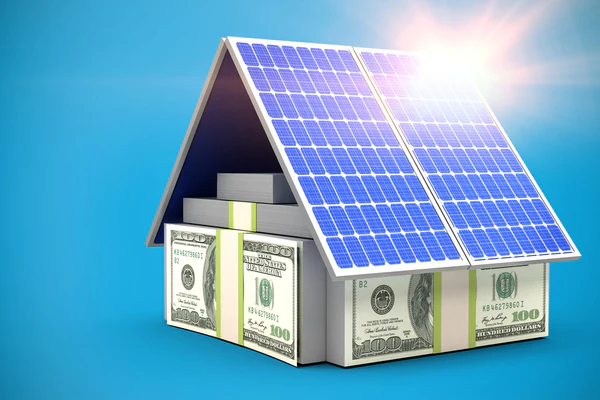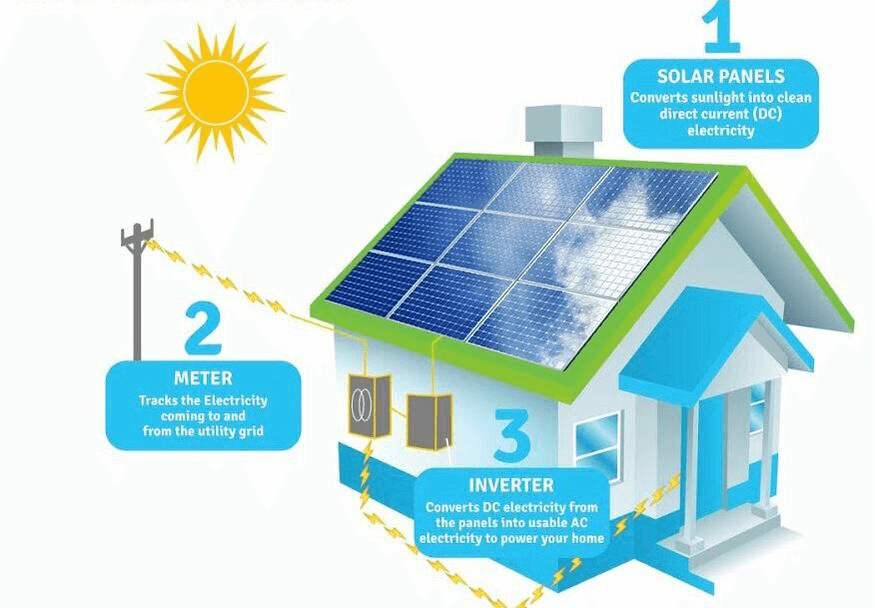Solar Energy 101: A Beginner's Guide to Sustainable Power Solutions
As the globe progressively moves in the direction of sustainable energy solutions, comprehending the basics of solar power ends up being important for both individuals and businesses. By exploring the advantages of solar technology, alongside the financial motivations and setup procedures, one can get a more clear perspective on exactly how to effectively integrate this renewable source right into their energy technique.
Recognizing Solar Power
At its core, understanding solar energy entails understanding the essential concepts of exactly how sunshine can be transformed right into functional electrical power. Solar power is originated from the sun's radiation, which can be harnessed through different innovations. The primary system for this conversion is the photovoltaic impact. This sensation happens when sunshine strikes semiconductor materials, normally silicon-based, within solar batteries. The power from the sunlight thrills electrons in the semiconductor, allowing them to move openly and produce direct present (DC) electrical power.

Understanding solar power additionally entails recognizing its environmental advantages. By using sunshine, we can reduce greenhouse gas discharges and lower air pollution, adding to a much more lasting future. The innovations in innovation and performance of solar systems proceed to enhance their practicality, making solar power a progressively eye-catching alternative for worldwide energy needs.
Kinds Of Solar Power Systems
Numerous types of solar energy systems are generally utilized to harness solar power for electrical power generation. The primary groups include photovoltaic or pv (PV) systems, concentrating solar energy (CSP) systems, and solar thermal systems.
Solar systems make use of solar panels composed of silicon cells that transform sunshine directly right into electrical power. These systems are functional and can be set up on roofs, ground installs, or incorporated into structure materials.
Concentrating Solar energy systems, on the other hand, employ mirrors or lenses to focus sunlight onto a little location, generating warm that drives a vapor wind turbine to create electrical power - Simply Solar Illinois. CSP systems are commonly deployed in large power plants and need straight sunlight, making them less appropriate for cloudy regions

Each kind of solar energy system has its special qualities, applications, and viability depending upon geographical place, energy requirements, and budget, making it vital to examine choices based on particular circumstances. - Simply Solar Illinois

Benefits of Solar Power
Utilizing solar power via various systems not only offers a sustainable way to create power yet additionally supplies a wide variety of advantages. One of the most substantial benefits is the decrease in greenhouse gas discharges, contributing to a cleaner environment and combating environment modification. Solar power is renewable, meaning it is infinite and readily available as long as the sun beams, unlike fossil fuels, which are finite and diminishing.
Additionally, solar energy can lead to substantial price financial savings in time. Homeowners and organizations can minimize their electrical power bills substantially, and oftentimes, they may make credits for excess power produced with net metering. In addition, the solar market develops tasks, from making to setup, boosting regional economic situations.
One more compelling benefit is power independence. By producing their very own electrical energy, people and neighborhoods can decrease dependence on external power resources, enhancing durability versus varying energy rates and supply interruptions. Solar power systems require minimal upkeep, making them a convenient choice for lasting power generation.
Installation Refine Review
The installation process for solar power systems normally entails several essential actions that make certain effective integration into a residential or commercial property. At first, a thorough website assessment is conducted to assess the roofing system's positioning, shading, and architectural honesty, which are critical to optimizing solar panel performance. Following this assessment, the style phase starts, where a customized solar power system is set up based on the home owner's energy demands and choices.
As soon as the style is wrapped up, the essential authorizations and authorizations are gotten from neighborhood authorities, guaranteeing conformity with policies. The real installment involves placing the photovoltaic panels on the roofing system or ground, attaching them to an inverter, and integrating the system with the home's electrical configuration. This stage may likewise entail setting up battery storage space systems, relying on the design.
With the setup complete, the solar energy system can begin creating renewable energy, contributing to sustainability and decreasing utility costs. This organized strategy guarantees that solar systems are both reliable and click here to read trustworthy, optimizing their long-term advantages.
Financial Incentives and Savings
Discovering the economic rewards and cost savings related to solar power systems can dramatically improve the charm of making the switch to renewable resource. Different incentives exist at federal, state, and local degrees, created to minimize the preliminary costs related to solar installation. One of the most significant incentives is the government solar tax credit scores, which enables house owners to subtract a portion of their planetary system installment expenses from their government browse this site taxes. Since 2023, this credit report stands at 30%, providing considerable savings.
In enhancement to tax obligation debts, lots of states use discounts that can better decrease in advance costs. Some energy companies likewise provide performance-based incentives, fulfilling solar energy manufacturing over time. Financing options, such as solar lendings and leases, permit consumers to mount systems with little to no down payment, making solar energy a lot more accessible.

Long-term savings are another important factor. By producing their very own power, home owners can significantly top article reduce or even remove their month-to-month energy bills. Additionally, solar systems can raise building values, providing a strong return on investment. In general, the mix of rewards and savings makes solar power a financially appealing choice for lots of houses.
Conclusion
To conclude, solar energy stands for an essential part of sustainable energy services, offering a path towards minimized carbon footprints and enhanced environmental defense. The varied kinds of solar power systems, paired with substantial economic rewards, facilitate broader fostering amongst people and neighborhoods. Understanding the setup processes and advantages connected with solar energy empowers stakeholders to make educated choices. Eventually, the shift to solar energy not just cultivates eco-friendly responsibility however also advertises financial cost savings and power freedom.